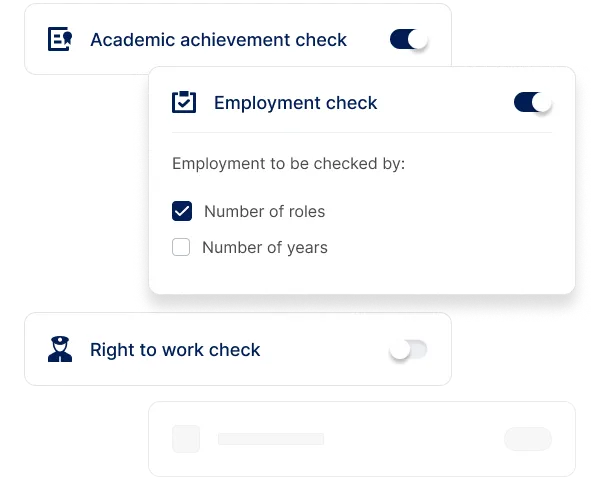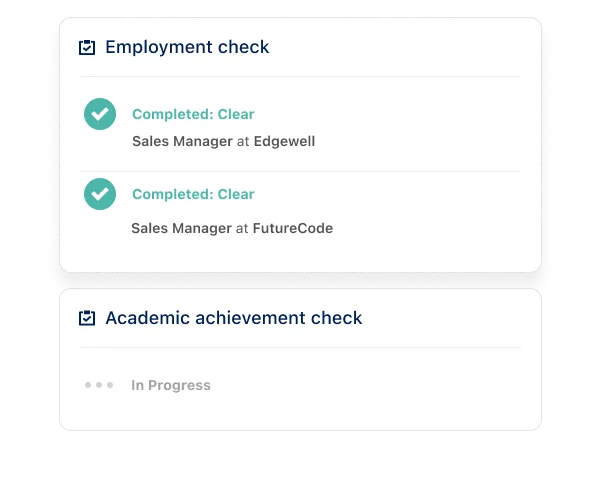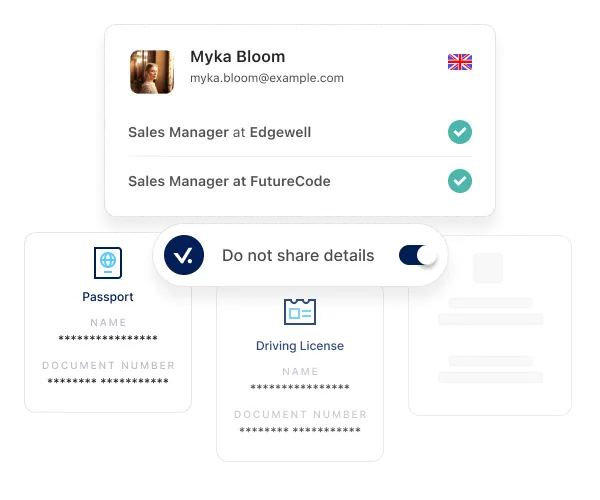A Guide to Employment Background Checks in the USA
Everyday, Veremark carries out background screening all over the world for companies who need checked and verified employees. If you’re looking for background checks in the US, here’s some information that might help.
In the rapidly evolving U.S. economy, businesses are more focused than ever on hiring the right talent to stay competitive. Employment background checks play a critical role in ensuring the safety, integrity, and compliance of a company’s workforce. From verifying educational qualifications to checking for criminal records, background screening helps businesses make informed hiring decisions.
This guide will provide an in-depth overview of background checks in the USA, including key legal considerations, common screening types, data security, and best practices for employers.
Introduction: The USA’s Growing Economy and Workforce
The U.S. economy, one of the largest in the world, continues to thrive across multiple industries such as healthcare, technology, finance, and manufacturing. As businesses expand, finding qualified and trustworthy employees is crucial. With a diverse and competitive workforce, background checks are essential in mitigating risks associated with hiring, reducing liability, and ensuring compliance with industry regulations.
A well-structured background check program can significantly lower the risk of hiring individuals who may pose a threat to the company or its reputation.
Legal Framework and Data Protection
In the USA, employment background checks are governed by several federal and state regulations. Key legal frameworks that companies must adhere to include:
- Fair Credit Reporting Act (FCRA): The FCRA governs the collection and use of consumer information, including background checks. It ensures that candidates’ rights are protected and that their consent is obtained before conducting checks. Employers must notify applicants when background information is being collected and disclose if any adverse actions are taken based on the findings.
- Equal Employment Opportunity Commission (EEOC): The EEOC enforces laws related to discrimination in hiring. Employers must ensure that background checks do not violate anti-discrimination laws based on race, gender, or other protected characteristics. This is particularly important when dealing with criminal background checks
. - Ban the Box Laws: In some states and cities, employers are restricted from inquiring about an applicant’s criminal history until later in the hiring process, often after a conditional offer has been made. These laws aim to give individuals with criminal records a fair chance at employment .
Common Background Checks in the USA
Criminal background checks are one of the most common screening tools in the U.S. They help ensure that potential hires do not pose a threat to the company or its employees. These checks typically cover state, federal, and county records, revealing any criminal convictions or arrests. For roles in sensitive industries, such as finance or healthcare, a thorough federal background check may also be required

Employment history verification confirms the accuracy of a candidate’s previous job titles, employment dates, and responsibilities. This check is critical in determining if the candidate has the experience necessary for the role. False claims on resumes are common, and verifying employment history ensures transparency.

For roles requiring specific qualifications, education verification ensures that a candidate’s claimed degrees, certifications, or educational background are accurate. Misrepresentation of academic credentials is a common issue in hiring, and education checks help employers make informed decisions

Global watchlist checks screen candidates against international databases, including sanctions lists, terrorism watchlists, and other regulatory bodies. These checks are critical for industries subject to strict compliance regulations, such as finance, government, and international trade.

For positions involving financial responsibility, credit checks are often used to assess a candidate’s financial behavior. This check is especially common in the finance, banking, and accounting sectors. However, credit checks must comply with FCRA regulations and should only be conducted if relevant to the job.


Seamless integration with existing hiring software
Plug our award-winning background screening software into your existing hiring workflows with Veremark's super-fast RESTful API.
Privacy and Data Security in the USA
Data privacy is a significant concern when conducting background checks in the U.S. Employers must ensure they are handling sensitive personal information in compliance with both federal laws like the FCRA and state-specific regulations.
- Consent: Employers must obtain explicit written consent from candidates before conducting background checks. Candidates should also be informed about the scope of the check and their rights under the FCRA .
- Secure Data Handling: Employers and background check providers must ensure the secure storage and transmission of personal information. Access to sensitive data should be limited to authorized personnel, and data retention policies should comply with federal and state laws
Turnaround times
Key Industries Using from Background Checks in the USA
Finance
The financial sector is heavily regulated, and background checks help ensure compliance with industry standards. Criminal checks, credit reports, and global watchlist screenings are crucial for safeguarding against fraud and maintaining trust with clients .
Healthcare
Background checks in healthcare ensure that employees are qualified to provide patient care and are not a danger to vulnerable individuals. Criminal record checks, employment verification, and license verification are commonly required.
Technology
With increasing concerns around data security, technology companies often conduct background checks to ensure that employees handling sensitive information do not have a history of data breaches or fraud.
Best Practices for Employers in the USA
To ensure compliance and avoid potential pitfalls, employers should follow these best practices when conducting background checks:
- Obtain Written Consent: Always obtain written consent from candidates before starting the background check process.
- Use a Trusted Provider: Choose a reputable background check provider familiar with U.S. laws and regulations. This ensures compliance with the FCRA and other relevant legal frameworks .
- Tailor Background Checks to the Role: Customize the types of background checks based on the specific position. For example, finance roles may require credit checks, while healthcare roles may need more stringent criminal screenings.
- Provide Candidates with an Opportunity to Respond: In compliance with the FCRA, if adverse information is found, provide the candidate with a copy of the report and give them the opportunity to explain or correct the information.
How it works




Data protection by design
Vault-like security with ISO and SOC2 certification
In the USA, employment background checks are essential for ensuring that companies hire the right people while remaining compliant with federal and state laws. By conducting thorough checks on criminal records, employment history, education, and global watchlists, businesses can mitigate risks and protect their workforce and reputation. Adopting best practices, such as obtaining candidate consent and securing data, ensures a smooth and legally compliant background screening process
Read more
FAQs
This depends on the industry and type of role you are recruiting for. To determine whether you need reference checks, identity checks, bankruptcy checks, civil background checks, credit checks for employment or any of the other background checks we offer, chat to our team of dedicated account managers.
Many industries have compliance-related employment check requirements. And even if your industry doesn’t, remember that your staff have access to assets and data that must be protected. When you employ a new staff member you need to be certain that they have the best interests of your business at heart. Carrying out comprehensive background checking helps mitigate risk and ensures a safer hiring decision.
Again, this depends on the type of checks you need. Simple identity checks can be carried out in as little as a few hours but a worldwide criminal background check for instance might take several weeks. A simple pre-employment check package takes around a week. Our account managers are specialists and can provide detailed information into which checks you need and how long they will take.
All Veremark checks are carried out online and digitally. This eliminates the need to collect, store and manage paper documents and information making the process faster, more efficient and ensures complete safety of candidate data and documents.
In a competitive marketplace, making the right hiring decisions is key to the success of your company. Employment background checks enables you to understand more about your candidates before making crucial decisions which can have either beneficial or catastrophic effects on your business.
Background checks not only provide useful insights into a candidate’s work history, skills and education, but they can also offer richer detail into someone’s personality and character traits. This gives you a huge advantage when considering who to hire. Background checking also ensures that candidates are legally allowed to carry out certain roles, failed criminal and credit checks could prevent them from working with vulnerable people or in a financial function.
Transform your hiring process
Request a discovery session with one of our background screening experts today.



%20(1)%20(2)%20(2)%20(1).jpg)
%20(1).webp)
